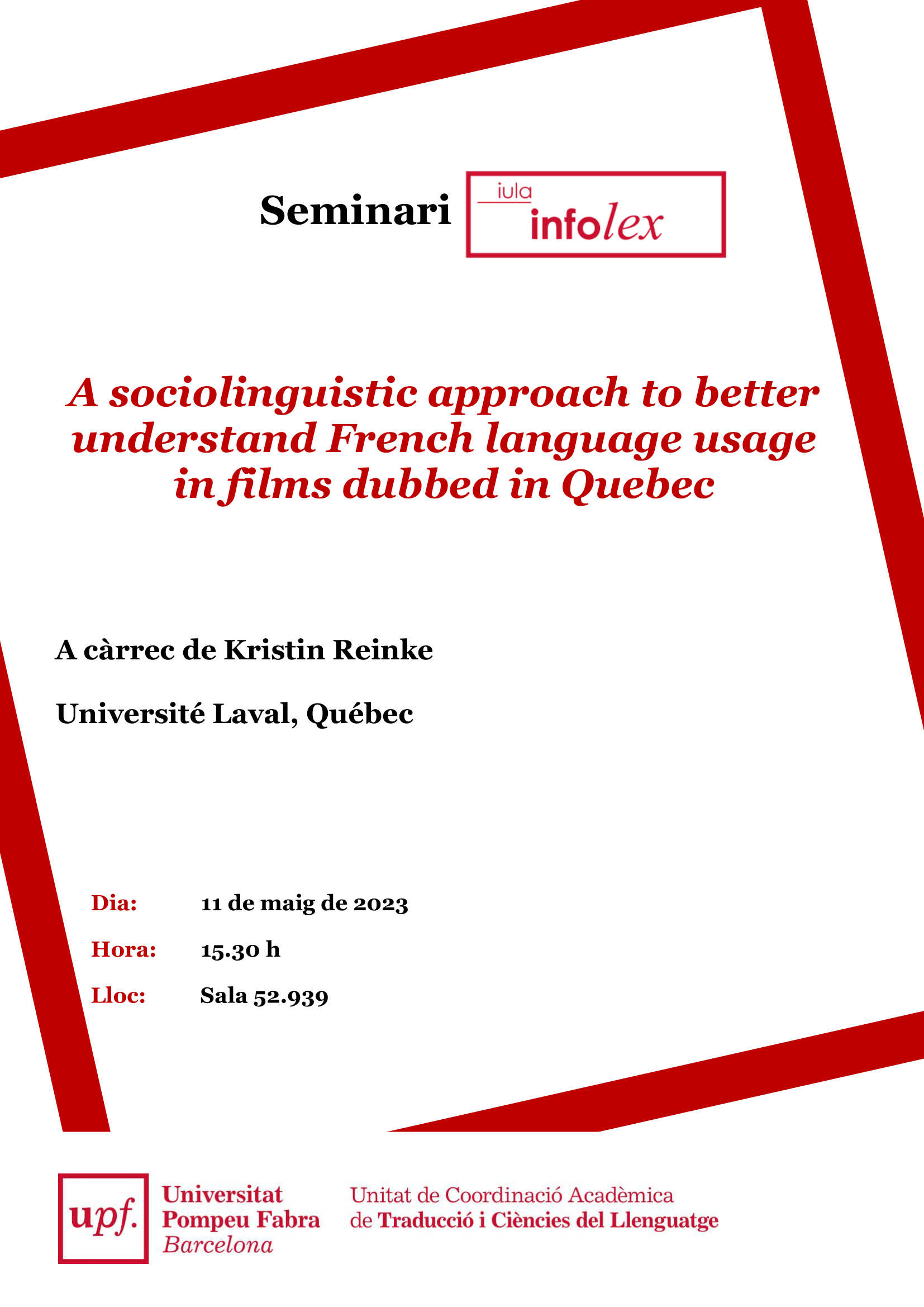11-05-2023 Seminari a càrrec de Kristin Reinke
Us convidem al proper seminari del grup InfoLex, que tindrà lloc el dijous 11 de maig en format presencial.
Títol del seminari: A sociolinguistic approach to better understand French language usage in films dubbed in Quebec
Ponent: Kristin Reinke is a full professor in the Department of Language, Linguistics and Translation and co-director of the Laboratoire de recherche sur les communautés de pratiques langagières (COPRAL), Université Laval (Québec, Canada). She is also a co-researcher at the Centre de recherche interuniversitaire sur le français en usage au Québec (CRIFUQ), Université de Sherbrooke. Her fields of research are sociolinguistics, linguistic variation in Quebec French, language attitudes and audiovisual translation.
Data i hora: 11 de maig, a les 15.30 h.
Aula: 52.939
Resum: Quebec is often held up as an example of a community that values its own endogenous standard. However, when foreign films are dubbed in Quebec, the language variety used is normally a so-called international French (IF), which is a euphemism to refer to the exogenous French standard. The dubbing industry asserts that this choice is an answer to public expectations, but little is actually known about the linguistic attitudes of the Quebecer’s in this context. The aim of the research that I shall present is to uncover the attitudes of Quebecers towards excerpts taken from foreign films dubbed in IF as well as in standard Quebec French (SQF) and colloquial Quebec French (CQF). The research uses an attitude test modelled on the matched guise technique (Lambert et al. 1960). We presented respondents (n=210) with 36 randomly ordered stimuli: twelve foreign-film excerpts dubbed in each of the three varieties by the same voice actors. Respondents were asked to score the dubbed voices on personal attributes, related to either in-group solidarity or socioeconomic status. Inferential analysis revealed that CQF voices received the least positive evaluations. Respondents preferred voices in IF, and in specific conditions, SQF. We argue that linguistic insecurity and listening habits might explain these results. The tension between the endogenous and exogenous standards would thus still be present.
Us hi esperem!

